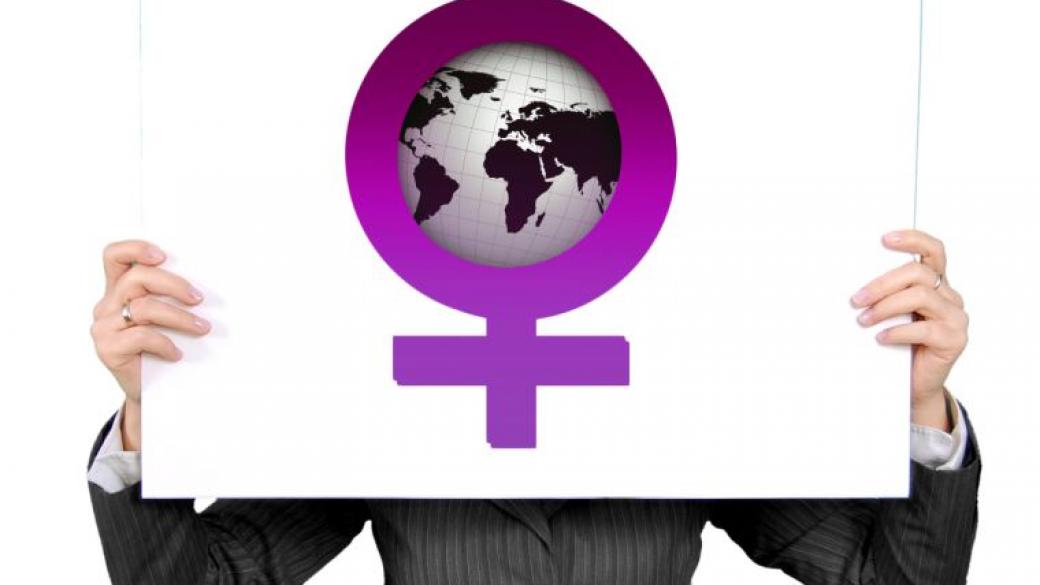Where Are the Women Billionaires
The richest ladies are often heiresses or wives of entrepreneurs, and not \"self-made\"

© ECONOMIC.BG / Pixabay
With a wealth of USD 43.7 billion, Alice Walton is not only the richest American woman, but also the richest lady in the world. She is the heiress of the wealth of the Walton’s family who have created the Walmart chain. Until September 2017, the world's wealthiest woman was Lilian Betancourt, the owner of 33% of the largest cosmetic concern - L`Oreal, also an heiress of her father's assets.
They
both are some other rich ladies who are not self-made entrepreneurs, but have
received their billions thanks to a happy marriage or a wealthy male relative.
The world is accustomed to men being the successful business examples. Who is
the female version of Bill Gates or Steve Jobs? It's neither Melinda Gates -
the wife of the Microsoft founder, nor Laurene Jobs, the widow of the Apple
genius. They both possess billions of dollars, but they lack the visionary halo
with which their famous halves are adorned.
A
glance at the bookshop shelves shows that, despite the existence of rich businesswomen,
motivation literature about entrepreneurship prosperity is written to a large
extent by men. At a global level, men have imposed their names as brands,
symbolizing profit, development, innovation - Elon Musk, Richard Branson, etc.
No man and no woman have ever succeeded only because of their own genius or
even of their own sex. Behind the success of all men is the support of many of
their women employees, mothers, female partners and other close people. Yet,
for some reason, business achievements generally have a male representative.
Women who have turned into successful brands at a global level are fewer, and
their lack is tangible. Despite all efforts to achieve gender equality, the
business world continues to be "male" dominated.
The
reasons for this imbalance are many - social, cultural, etc. A survey of Grant
Thornton International Business Report of 2012 shows that Russia is the country
with the highest percentage of women in a senior management position - 46%. In
the US and Canada they were only 18%, and at a global level, they were 21%.
Obviously, in some cultures and societies women are generally more empowered,
they are more expected to bear high responsibility in companies, to manage
people and money.
In
a survey among 132 companies and more than 4.6 million respondents in 2015,
McKinsey & Co. and Lean In found that almost every newly appointed chief
executive of a company was a man. Only 19% of presidents and executives were
women. For every 100 ladies who have been promoted to managers, there are 130
men who have advanced to a leading position. The explanation is not in the
lower ambition of women. In fact, it is 30% more likely for women to be
characterized as "too aggressive" or "threatening" than men
when they want a promotion.
"The
explanation for the resistance to our recognition lies in many of the unconscious
stereotypes about men and women in our country," says in an article for
The Wall Street Journal Sheryl Sandberg, Chief Operating Officer at Facebook
and founder of Lean In. According to her: "We expect men to be confident,
take care of themselves and want more, so there are few negative reactions when
they do. But women are expected to think
about the common, to be cooperative, to give away, to focus on the interests of
the team and not on their personal ones in order not to be seen as obsessed
with themselves. So, when a woman
protects her interests, people often look at her with disfavour."
The
mentioned survey found that women rarely feel their contribution recognized by
colleagues and management, and three times more often than men think that belonging
to the female sex prevents them from getting promoted. Managers’ explanation of
these attitudes and realities is that they give ratings and opinions to their
female employees less often, because they are convinced that ladies are more
likely to react emotionally than men.
And this is not wanted by male managers.
"At
the core of everything are unconscious prejudice. Women and men overestimate
men and underestimate women. History teaches us that men are leaders, and
people have such an expectation," says the President of Lean In - Rachel
Thomas.
Stereotypes
are also mentioned by Susan Chira - Editor of New York Times, in her article on
gender issues and their social dimensions. She notes that according to
managers, heads of recruitment departments and companies that work as
intermediaries, women often seem "dependent". It is more likely for a
woman to be criticized when she gets into the spotlight after she has reached a
leading position. Moreover, men are afraid of confident women. While in men
competition is to a greater extent socially inherent, most women have not
mastered such way of thinking.
Indra
Nooyi, CEO of Pepsi, points out some of the complaints of women who have reached
a leading position in a male-dominated company. For example, women are
criticized for ideas that are declared "wonderful" when they are
pronounced by men.
Ladies
are becoming increasingly involved in the management of technology companies.
They are heading or are vice-presidents of companies such as IBM, Facebook,
Google, Twitter, etc. But where is the female Steve Jobs or Bill Gates?
Hanna Rosin, founder of the women’s blog of the Slate Magazine - Double X and author of the book "The End of Men," answers: "Women tend to move forward through large organizations, through references, through structures and systems. It is still a bit difficult for women to go beyond the standard paths of recognition.”
In
the world of technology companies and businesses, obstacles to women's
recognition are the lack of mentors, supporters, role models (well-established
female figures) to support their development with the necessary experience.
"People do not leave a certain company, but a certain manager. If you have
a degree in science, you're used to being the only woman in the classroom. But
it is not uncommon for you to be kept away,"
says Laura Sherbin, Director of
Research at the US Center for Work-Life Policy. She adds that if only 10% of
the senior management is made up of ladies, this is a turning point that has a
significant positive impact on the experience of female employees.
Actually, around the world, women are becoming more and more aware of their power, and this is seen not only in movements such as #metoo or the various protests for women's equality, but also in the growing number of investment funds investing in women-owned companies. So, in business, there are still more ladies to rise up to the top.















